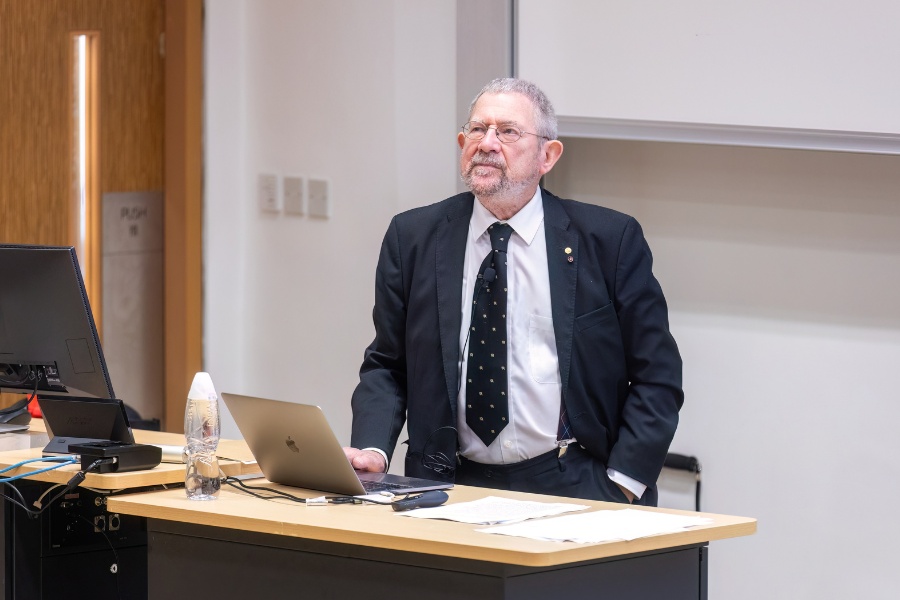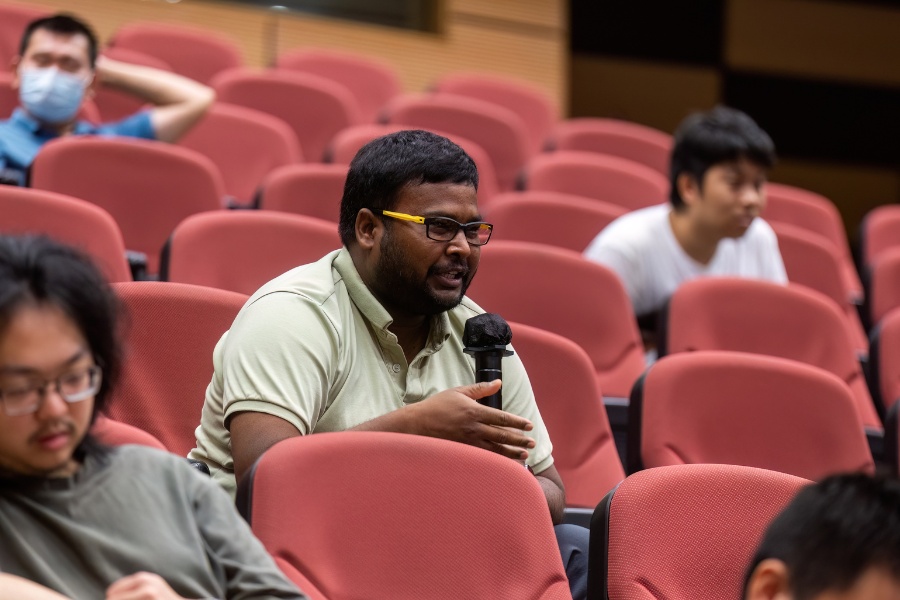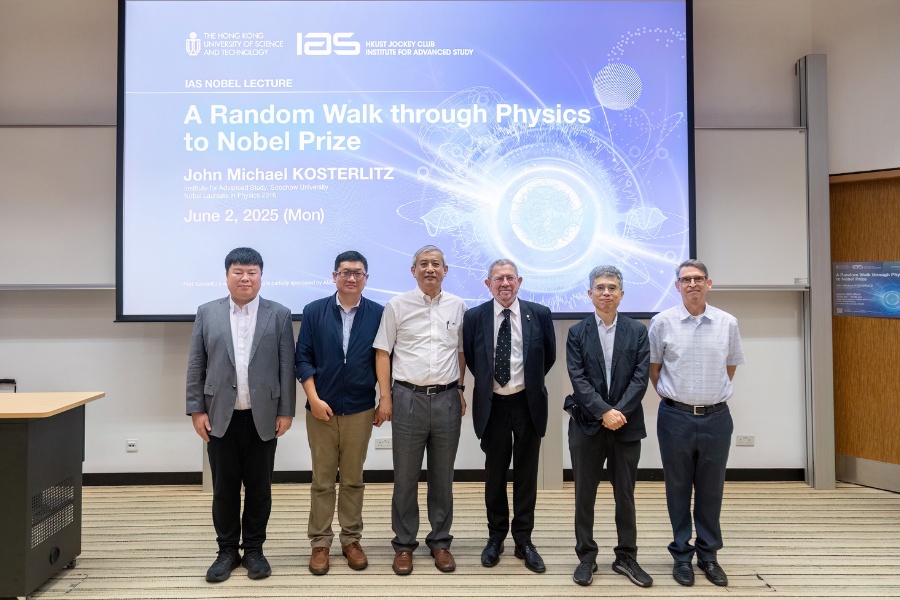A Random Walk through Physics to Nobel Prize
Abstract
This talk is the story of the speaker's random walk through physics via Cambridge, Oxford, Turin and Birmingham finishing up at Brown University. He describes his very crooked path through life, including physics and his other life as a mountaineer. The speaker also includes a somewhat simplified version of his prize-winning work.
About the Speaker
Prof. John Michael KOSTERLITZ received a BA, and an MA, at Gonville & Caius College of University of Cambridge. He earned a DPhil from University of Oxford as a postgraduate student of Brasenose College, Oxford. During his time at the University of Birmingham, he collaborated with David THOULESS, and a postdoctoral student at Cornell University. He was appointed to the faculty of the University of Birmingham in 1974, first as a lecturer and, later, as a reader. Since 1982, he has been Professor of Physics at Brown University. Prof. Kosterlitz does research in condensed matter theory, one- and two-dimensional physics, in phase transitions: random systems, electron localization, and spin glasses and in critical dynamics: melting and freezing. He has been awarded the James Clerk Maxwell Medal and Prize from the British Institute of Physics, and the Lars Onsager Prize from the American Physical Society both for his work on the Kosterlitz-Thouless transition. Prof. Kosterlitz was also awarded the Nobel Prize in Physics in 2016 shared with Prof. David Thouless and Prof. Duncan HALDANE for “theoretical discoveries of topological phase transitions and topological phases of matter”. He was elected a member of the US National Academy of Sciences in 2017.
Prof. Kosterlitz is interested in the problem of state selection in driven out of equilibrium systems such as directional solidification and eutectic growth. He has collaborated with the Helsinki group using phase field modeling to study problems in material science. Most recently he has applied phase field methods to crystalline solid. He is working on wavelength selection in driven out of equilibrium systems. This phenomenon seems to occur in various experimental systems but a convincing theoretical explanation or understanding is lacking. The approach to the unique equilibrium distribution can be understood theoretically but driven out of equilibrium systems do not seem to be amenable to similar treatment.
For Attendees' Attention
Seating is on a first come, first served basis.















